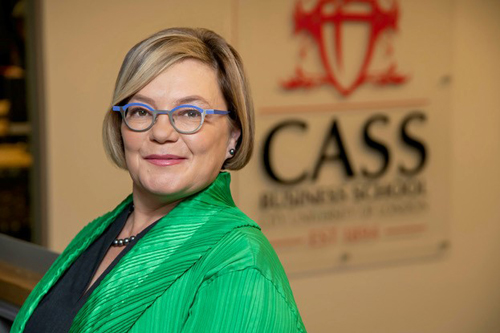The academic researchers from Cass Business School – part of City, University of London – have received funding to design a system of risk-sharing that will allow businesses to continue trading despite the uncertainty caused by Covid-19

The City, University of London academics will work with government actuaries and industry associations on the project (Credit: PxHere)
Academics from City, University of London have received funding for a research project aimed at designing a risk-sharing framework to provide business interruption insurance to companies disrupted by pandemics.
Led by reinsurance expert Professor Paula Jarzabkowski, the team at the university’s Cass Business School will work alongside the Association of British Insurers (ABI), the Government Actuary’s Department (GAD), Flood Re, Pool Re, and the Confederation of Business and Industry (CBI).
The grant, which came from government-linked funding organisation UK Research and Innovation (UKRI), will drive the creation of a sustainable longer-term governance and funding solution for supporting UK business against interruption from current and future pandemics.
Jarzabkowski said: “The pandemic is too systemic to be covered by the insurance industry, and yet we will need insurance to enable business to keep trading, and to help kickstart our economy following the lockdown.
“We therefore need to look at ways to share risk between businesses, the insurance industry and the government.

“This is vital to give business the confidence to trade and allow the economy to recover, particularly while we deal with the uncertainty of future pandemics alongside all the other types of losses from which we will need insurance protection.”
Many fear that without an adequate plan to insure businesses against disruption caused by pandemics, both reinsurers and the capital markets will pull the capacity that allows primary insurers to cover these risks out of the market, reducing the availability of business interruption insurance.
After the UK locked down and business interruption claim denials began to mount, industry associations called for government intervention to make pandemics insurable, using a system of shared public and private capacity similar to the arrangements used for flood (Flood Re) and terrorist risk (Pool Re).
“While the government is currently acting as the ‘insurer of last resort’ and simply putting taxpayers’ money into keeping businesses afloat, a properly planned ex-ante insurance mechanism would allow at least some of this loss to be paid by the insurance industry and also enable governments to identify additional support for future pandemics,” added Jarzabkowski.
The project will release interim outcomes and make its final recommendations in August 2021.
Academic research project one of many efforts to address pandemic risk
The ABI, one of several industry organisations pushing for the creation of a government-backed insurance programme to cover pandemic risk, welcomed the funding for Jarzabkowski’s research project.
ABI Director general Huw Evans said: “We fully support the need to discuss how the economy can be better insured against pandemics and welcome this project.
“Partnerships between the public and private sector have been key to resolving such challenges in the past and Cass Business School excels in studying how these work throughout the world.
“We look forward to collaborating with them, as well as the government and other partners, to find new solutions.”
The topic of how to use government funds to insure for the next pandemic is being discussed elsewhere in the insurance industry, with Lloyd’s of London, Totus Re and UK steering group Pandemic Re – chaired by industry veteran Stephen Catlin – also looking to design a framework for resilience that includes the insurance market.
One notable difference with Lloyd’s of London’s approach, as well as that of Totus Re, is that both emphasise the need to create a government-backed pool that’s flexible enough to respond to systemic risks in general, rather than focusing on single perils.
Totus Re – co-founded by Worry+Peace CEO James York, along with Society of Insurance Broking non-executive director Liz Foster – recently referred to this approach as “adding a pandemic silo to the government’s ad-hoc architecture of guarantees and backstops in a game of endless whack-a-mole.”
